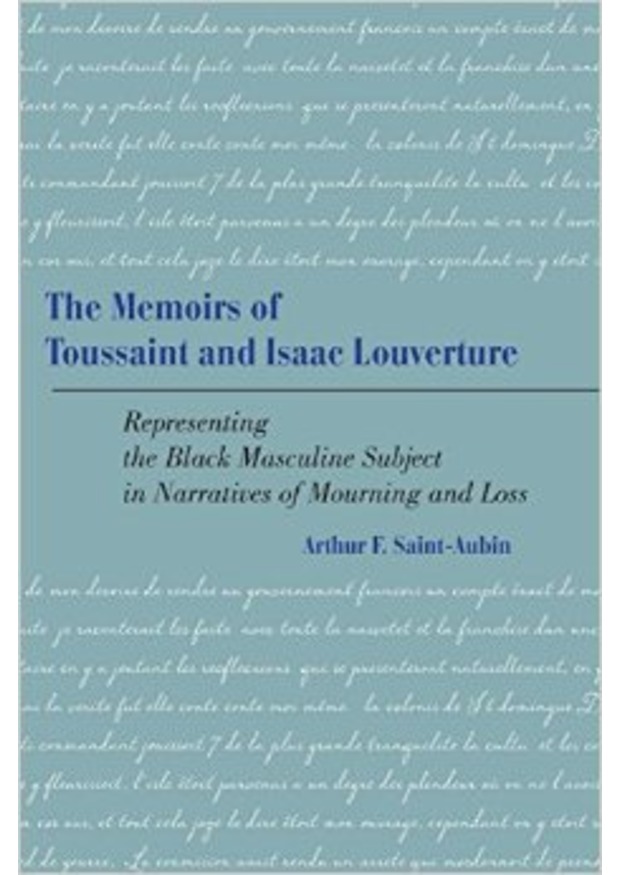Representing the Black Masculine Subject in Narratives of Mourning and Loss
This book examines the memoir of Toussaint Louverture—a former slave, general in the French army, and leader of the Haitian Revolution—and the memoir of his son, Isaac.
The Revolution and its leaders have been studied and written about extensively. Until recently (2004), however, the memoir of Toussaint has received little attention—and only as a historical document. This is the first study that explores the 1802 work foremost as a literary text, a creative production that deploys the techniques of fiction and drama to make truth claims about the past; moreover, this is the first book-length study of Isaac Louverture’s memoir. The two texts are read as examples of how black men thought of themselves as “men” (citizens) and, therefore, how they expressed their masculinity, at that historical moment, as experiences of mourning and loss.
This study builds upon three areas of scholarship: the tradition of memoir writing; historicist readings of Toussaint’s memoir; and descriptions and theories of men and masculinity within the black Atlantic.
The study distinguishes itself in ways that will make it of interest to more than just historians: in addition to using the intersection of race and masculinity as an analytical tool, it speaks to the nature of literary creativity and it draws from studies examining the relationship between history, memory, and fiction. As a result, scholars and students in literary and cultural criticism, as well as those in gender and diasporic studies, will also find this study of interest and value.
Reviews:
This fascinating study by Arthur Saint-Aubin sheds welcome light on a pair of intriguing and problematic personal narratives by the iconic Haitian Revolutionary leader, Toussaint Louverture (1743–1802), and his French-educated son Isaac Louverture (1783–1854), whose writing remains largely unknown to many Haitianist scholars. Saint-Aubin’s extremely well-researched book . . . resonates with a wide range of contemporary scholarship on the Haitian Revolution, the Black Atlantic, and postcolonial literary and cultural theory. . . . Saint-Aubin, recognizing that Toussaint’s work in particular has received significant treatment by historians, turns to examine the poetic voices and psychological profiles of the Louvertures as evidenced in their memoirs, with the stated goal of showing how they help establish a black masculine subjecthood. . . . The argument put forth in this book is original and compelling.— Mariana Past, Dickinson College













